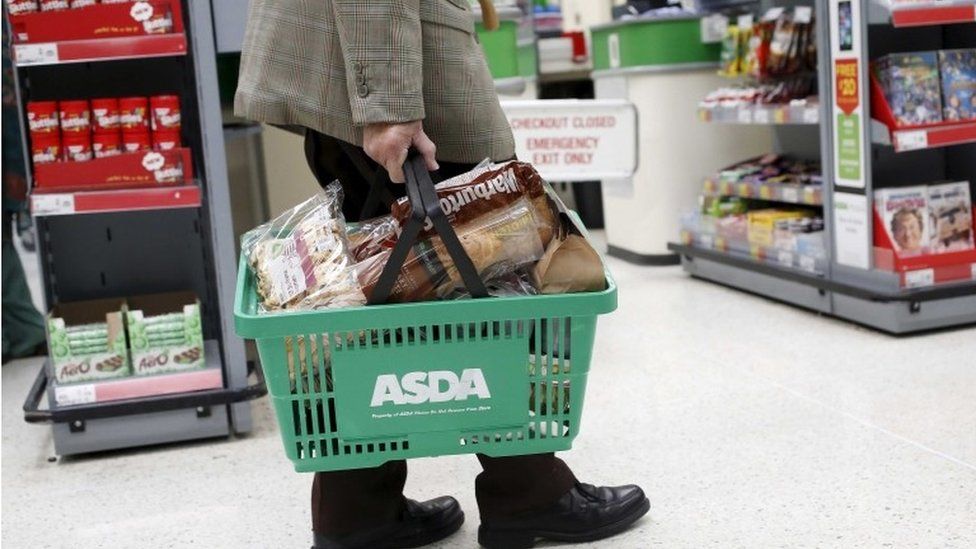Asda sales slump continues amid 'fierce competition'
- Published

Supermarket Asda has reported a 5.7% fall in like-for-like sales during the first quarter of the year after facing "fierce competition".
It follows a 5.8% slump sales during the previous quarter, which was Asda's biggest sales fall on record.
The chain, which is owned by US retailing giant Walmart, said UK sales "continue to struggle".
Walmart also reported falling profits. Net income for the first quarter fell 7.8% to $3.08bn (£2.1bn).
"The UK continues to struggle, due primarily to fierce competition," said Walmart's chief financial officer Brett Biggs.
"Improvements in price and product availability throughout the quarter were not enough to overcome traffic and food volume declines in our large format stores."
According to the consumer research firm Kantar Worldpanel, Asda lags behind Tesco and Sainsbury's in terms of "big four" supermarket sales.
But each of the four major UK supermarket chains, which also includes Morrisons, have been engaged in a long-running and bitter price war as part of an attempt to slow gains in market share by discounters such as Aldi and Lidl.
Asda is attempting to recoup sales by cutting prices to narrow the gap with the discounters and widen its price advantage over its three biggest rivals.
It is also in the middle of a programme to overhaul its product range, modernise its 95 largest stores, and reduce costs.
Duygu Hardman, an analyst at Verdict Retail, said that Asda needed to compete in terms of quality as well as price.
"While Asda has traditionally attributed its suffering market position among the Big Four to the short-term tactics of its competitors, this is no longer the case with the focus shifting to value rather than price," she said.
"Asda needs to achieve the right balance of price, quality and service if it wants to better address the fast-changing needs of its customers".
Walmart sales boost
Parent company Walmart reported a profit for the quarter of $3.1bn, a decline of 7.8% from the previous year.
Despite the fall in profits, Walmart's results were better than analysts had predicted. Shares in the company rose more than 9% in early trading in the US.
The company said that was mainly down to the cost of increasing its minimum wage to $10 an hour and investment in new warehouses.
In addition, the US retail giant said like-for-like sales rose 1% in the quarter which ended on 29 April, and that it had seen more customer visits.
"Overall a pretty strong quarter," said Mr Biggs. "We are very pleased with the traffic increases, and I think that goes along with what we are seeing with customer experience scores that continue to improve."
- Published4 May 2016
- Published13 April 2016